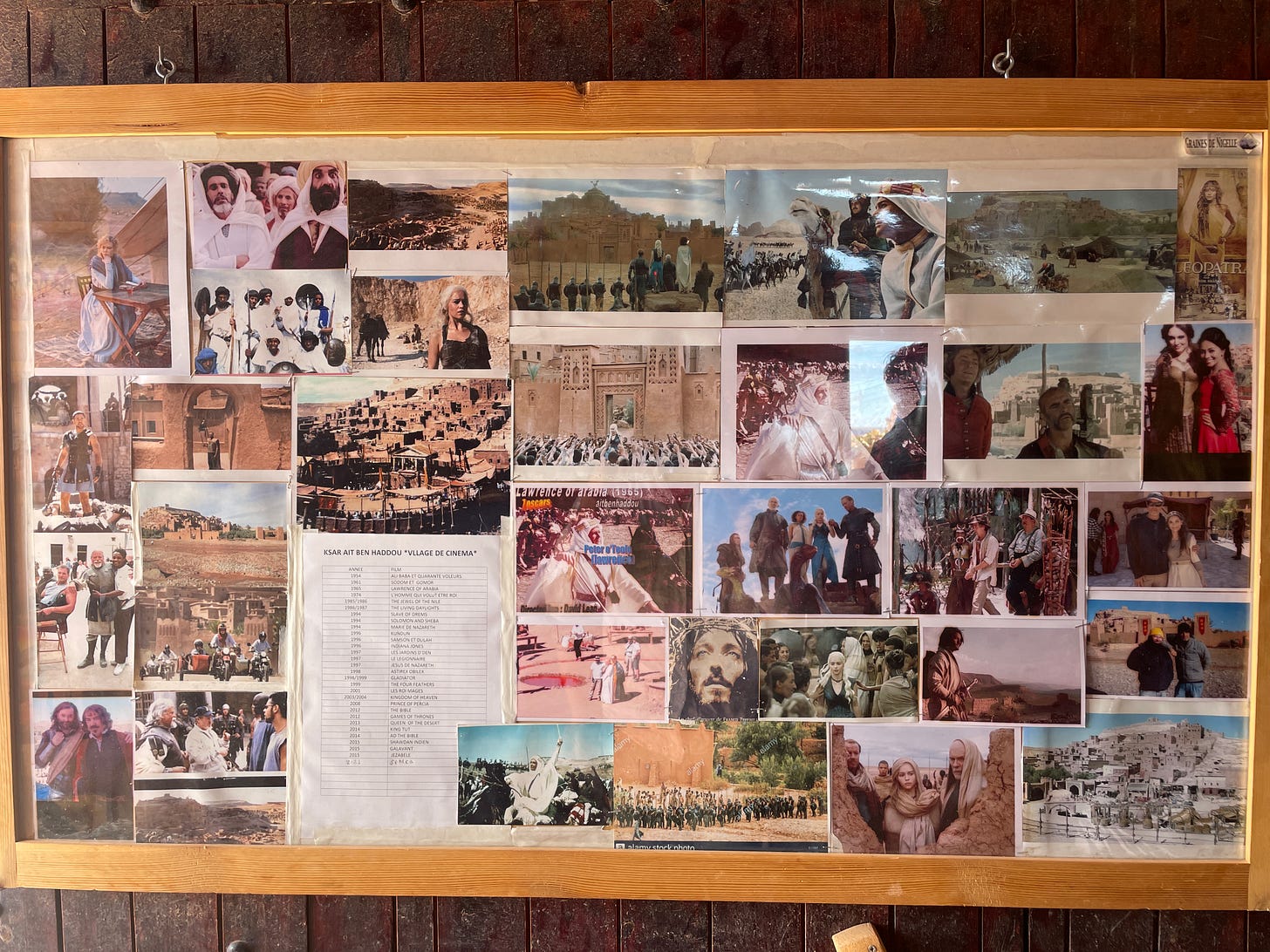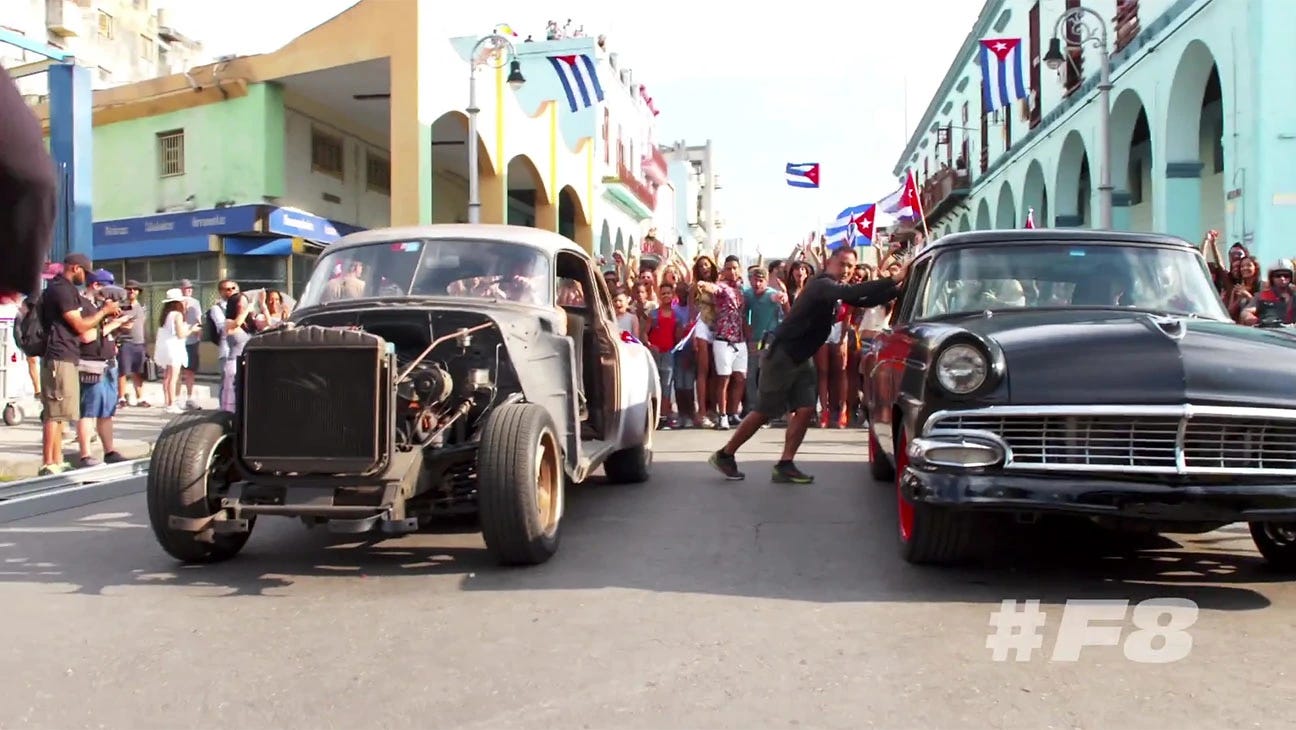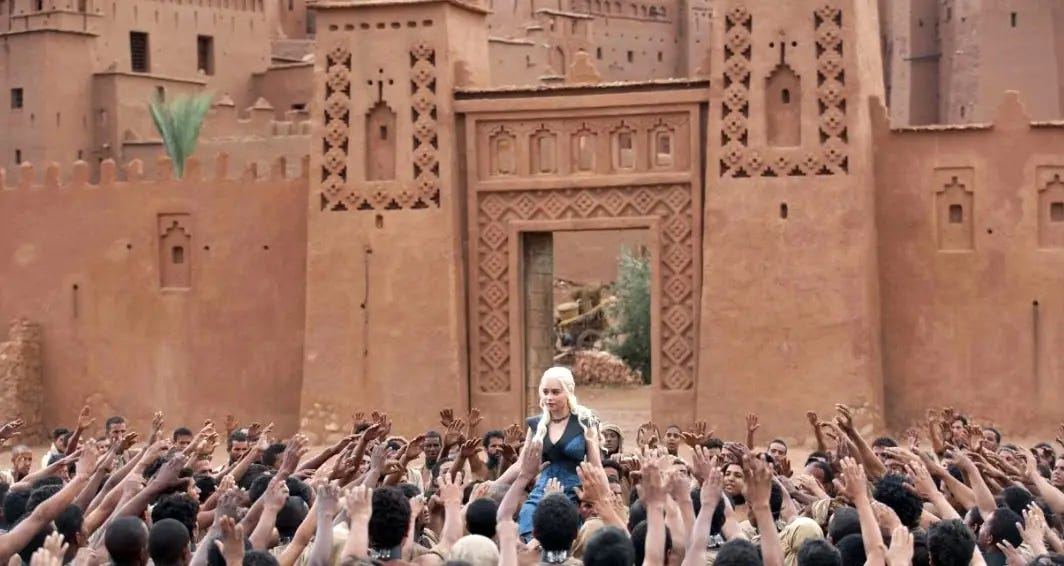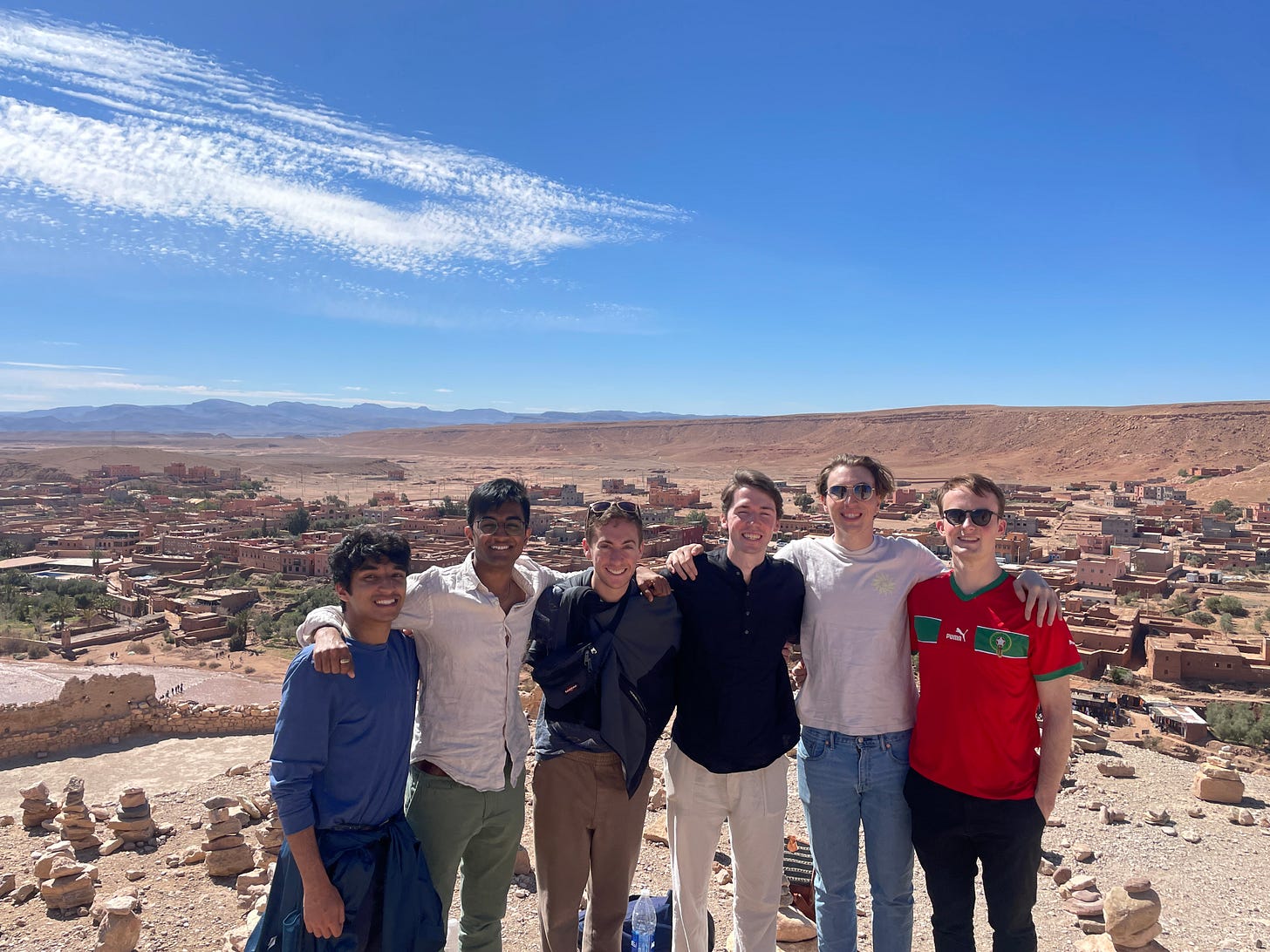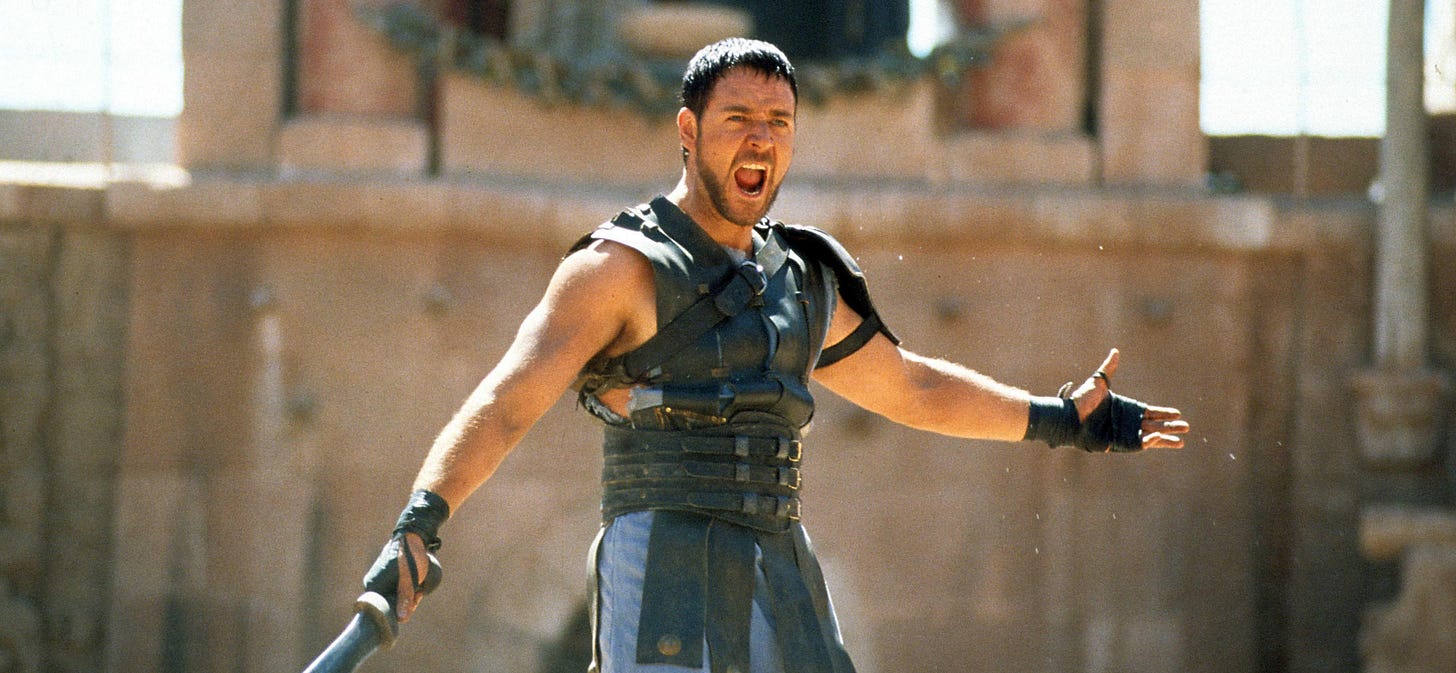Writing to you (a few days late) this week from Casablanca, Morocco!
A few days ago we had the chance to tour Aït Ben-Haddou, a historic village along the ancient caravan path between Marrakech and the Sahara. Whether or not you’ve heard of this UNESCO World Heritage site, you’ve likely seen this village several times before.
Aït Ben-Haddou is a famous filming location for all things desert. Scenes from Gladiator (2000), Game of Thrones Season 3, Lawrence of Arabia (1962), The Mummy (1999), Prince of Persia (2010), Kundun (1997), and more were all shot in and around the village to capture desert life from all points in human history.
When movies take you to a world outside Hollywood, they have a few means of doing so. For a lot of scenes, they can simply build a set in one of the many warehouses lining the Studio Lots. These days, green-screen (and technologies like The Volume) allow you to bring the otherworldly anywhere. But for the best and biggest scenes, your best bet is to bring the crew where it matters — the location itself.
Aït Ben-Haddou is one such place. The Moroccan government has favorable regulation and infrastructure in place to make filming here as easy as possible. As a result, money pours in from Hollywood studios looking to capture the feel of an ancient desert city. These help keep heritage sites afloat, supporting local residents (who often serve as extras in films, including our tour guide himself) and providing a stream of revenue outside of just tourism.
Getting Diplomatic
But what about the areas less traveled? Or internationally recognizable landmarks? Think Tom Cruise scaling the Burj Khalifa and blowing up the Kremlin in Mission Impossible 4, or flying a helicopter over Kashmir in Mission Impossible 6. James Bond fighting for his life in Mexico City. Street racing in Havana in Fast and Furious 8.
Some of these countries (Cuba, Russia) don’t have the greatest relationships with the United States, making it difficult for Hollywood execs to get there. In general, every time a movie includes scenes that take place abroad, there’s a long process to get permission to film there.
Hollywood studios work with all manner of partners to get past this. Many have in-house teams specifically to liaise with foreign contacts and filming sites. When movies want to push the envelope with where they film, they even work with international diplomats in DC.
Enter: McLarty
Last spring, I spent some time interning at McLarty Associates, a geopolitical consulting firm that supports companies with their international operations. One of their practices: McLarty Media, tasked with helping production studios film internationally. Managing Partner Richard Klein had a decades-long career in diplomacy across the U.S. government, experience which he now brings to help studios film worldwide.
Klein and his team have a long resume. They helped Fast and the Furious 8 become the first major motion picture to film in Cuba since the revolution. They brought the first film ever to shoot in Abu Dhabi and the largest ever production team to Dubai (MI:4). And much much more.
Cultural ties like film are an important yet overlooked part of global relations. Something as small as a film permit may seem like a drop in the bucket compared to the wealth of history between the US and Cuba, for example, but they matter. And the flexibility with which US studios (and any country) can film in Morocco mean even stronger ties between the two.
Whether sites like Aït Ben-Haddou are ethical is another question entirely. As you look at the list of films shot there, you see almost entirely white casts and leads, white-savior stories, and movies rife with orientalist portrayals of the “exotic desert world”.
But in speaking with our tour guide, he spoke extensively about the benefits of such engagement. Well-paying jobs that support entire families, awareness and relevance brought to the region, boosts in tourism, and diversification away from tourism as well (especially during COVID). In any case, it was magical to see.
WEEKEND STREAMING RECOMMENDATION
GLADIATOR (2000) Dir. Ridley Scott. Available on HBO Max
A former Roman General sets out to exact vengeance against the corrupt emperor who murdered his family and sent him into slavery. It’s always surprising to me that something with this much mainstream appeal and this much blockbuster energy was able to (handedly) win best picture at the Oscars in 2000. A sweeping epic in every sense of the word, this movie brings you straight into the magic of Ancient Rome with a revenge story that will have you on your feet. The sequel is set to start filming in just a few months, back at Aït Ben-Haddou!
See you all again next week. Until then, please get in touch if you have any thoughts or suggestions you’d like to share. If you want to keep up with what I’m watching, follow me on Letterboxd @atharv_gupta.





